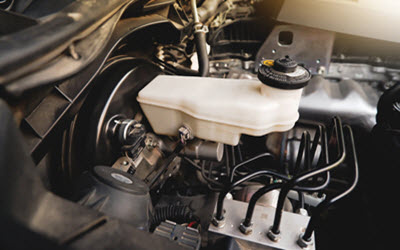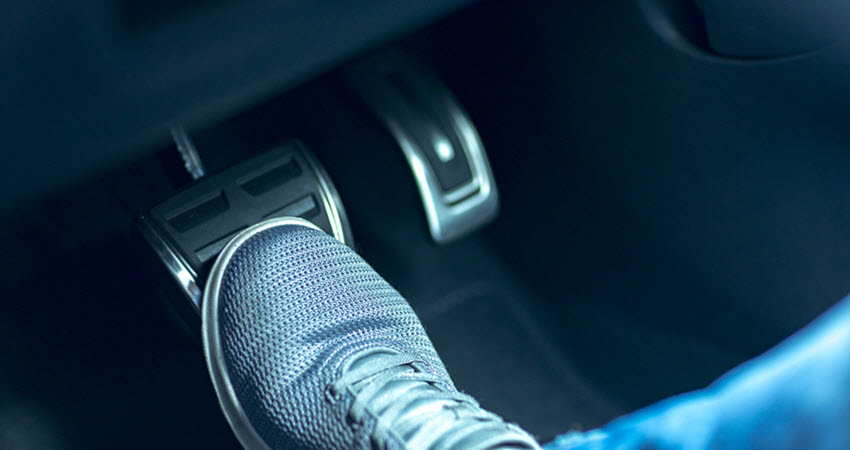Have you ever experienced that horrible feeling when you realize your car doesn’t have any brakes? I’m sure we all have, and it’s not a fun experience. Well, imagine if that happened while driving a BMW.
Scary, right?
Unfortunately, that’s what happened to some BMW drivers in China recently. The brake pads on some BMWs failed, causing the cars to skid uncontrollably. So far, no injuries have been reported, but this is a scary incident that could have turned out much worse.
Since BMW brakes are some of the best in the business, it’s no wonder that so many drivers choose them for their vehicles. But even the best brakes can fail, so it’s important to know what to do in case of a brake failure.
In this blog post, we’ll discuss the parts of BMW brakes and what you should do if your BMW brakes fail. Keep reading to learn more.
BMW Brakes & Brake Parts
1. BMW Brakes Pads
A key component of BMW brakes is the brake pads. A brake pad is the portion of the brake system that comes into contact with the rotors to create friction and stop the vehicle. If the brake pads are worn down, it will be difficult or impossible to stop the car, which can lead to a collision. It’s therefore important to regularly check your brake pads and replace them when necessary.
2. ABS/DSC System
The purpose of the ABS/DSC system in BMW brakes is to help the driver maintain control of the vehicle during braking. ABS (Anti-lock Braking System) prevents the wheels from locking up, while DSC (Dynamic Stability Control) maintains the vehicle’s stability when braking. This system can be extremely helpful in emergencies when quick decisions and precise actions are necessary.
3. BMW Brakes Rotors
The rotors in BMW brakes serve two purposes: first, to dissipate heat, and second, to provide extra stopping power.
The design of the rotors allows for better cooling because of the way the air flows through the openings. This helps to prevent brake fade, which is when the brakes start to get weaker and less effective due to excessive heat. Additionally, the extra stopping power comes from the fact that BMW has increased the surface area of contact between the brake pad and rotor.
4. BMW Brakes Lines
Brake lines are also an essential part of BMW brakes. Each wheel is supplied with hydraulic pressure through lines by the master cylinder. The level of hydraulic pressure generated by the master cylinder is determined by how hard you depress the brake pedal. This hydraulic pressure in lines is what ultimately causes the brakes to engage and slows or stops your vehicle.
5. BMW Brakes Sensors
There are three different BMW brake sensors, each one serving a specific purpose. Some of the more common brake sensors include the following:
- ABS sensor: This sensor is responsible for detecting when the wheels are locking up and then sending that information to the ABS so that it can pump the brakes to help prevent a skid.
- Speed sensor: This sensor is used to measure how fast the car is going so that the cruise control system can adjust to maintain a set speed.
- Parking brake sensor: This sensor is used to determine if the parking brake is engaged or not.
6. BMW Master Cylinder
Your BMW Master Cylinder is responsible for generating the hydraulic pressure that is necessary for your brakes to function properly. When you depress the brake pedal, it forces brake fluid from the master cylinder reservoir into the brake system, where it applies pressure to the calipers or wheel cylinders. This pressure forces the brakes to engage, slowing or stopping your vehicle.
The Master Cylinder plays a crucial role in your braking system and must be in good working order for your safety and peace of mind. Thankfully, it is not a complicated piece of machinery and can be serviced relatively easily.
What you should do if your BMW brakes fail?
If your BMW brakes fail, you should do the following:
- Pull over to the side of the road and stop in a safe place.
- Pump the brake pedal to build up pressure. If that doesn’t work, use your emergency brake.
- Shift into a lower gear and use engine braking to slow down as much as possible before coming to a stop.
- Apply the parking brake.
- Warn other drivers by using your hazard lights, if possible.
- Call for help using your cell phone or find someone who can help you push your car off the road if necessary.
People also ask
Why are BMW brakes so expensive?
BMW brakes might be more expensive than other brands because it is a luxury brand and people expect that everything about the car will be luxurious, including the brakes. Their brakes tend to last longer than other brands and so people are willing to pay more for parts that will last.
Are BMW brakes covered under warranty?
BMW brakes are covered under warranty. The BMW Maintenance Program covers all factory recommended services including pad replacement, brake discs, etc.
How much do BMW brakes cost?
BMW brakes cost around $150-$300 per axle. The cost of replacing them depends on how much wear they’ve caused to other components in your cars such as rotors, drums, lines, etc.
Let’s Recap
The BMW brake system is a hydraulic braking system that uses brake fluid to create pressure to stop the car.  When you step on the brake pedal, it sends a message to the master cylinder, which then sends pressurized fluid through the brake lines and onto the calipers of each wheel.
When you step on the brake pedal, it sends a message to the master cylinder, which then sends pressurized fluid through the brake lines and onto the calipers of each wheel.
The calipers clamp down on the rotor, causing it to slow down and eventually stop. The main benefit of a hydraulic braking system is that it provides even stopping power no matter how hard you hit the brakes. This is because there is always fluid available at each wheel to create pressure.
Additionally, this type of braking system doesn’t wear out your brakes as quickly since all of the brakings happen at each wheel rather than at the pedal.
 179 Reviews
179 Reviews  530 Business Parkway Ste 2., Royal Palm Beach, FL 33411
530 Business Parkway Ste 2., Royal Palm Beach, FL 33411 561-779-2650
561-779-2650 Appointment Now
Appointment Now
